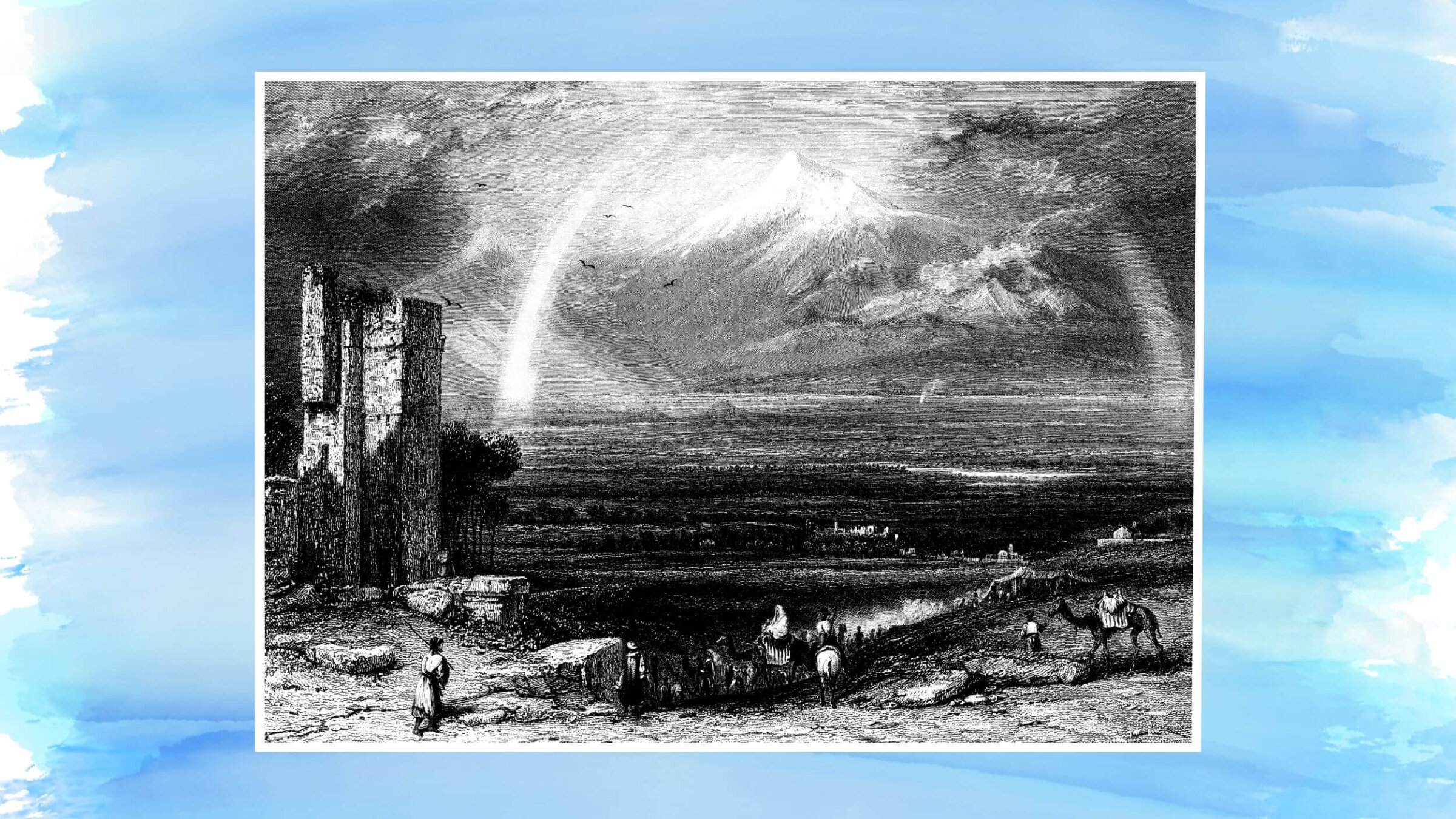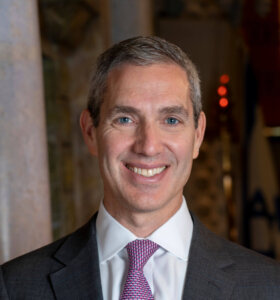It was the wildest scheme in American Jewish history. 200 years later, should it be remembered as a failure?
In the two centuries since the founding of Ararat — a self-governing Jewish colony in New York — much has changed, and much has stayed the same

From the biblical Mount Ararat to Ararat, New York. Graphic by powerofforever/iStock by Getty Images/Canva
Exactly 200 years ago, on September 15, 1825, a self-governing Jewish colony was ceremonially dedicated on Grand Island in northern New York State, just a few miles downstream from Buffalo on the Niagara River. Its name was Ararat, after the biblical mountain where Noah’s ark came to rest following the flood. Not coincidentally, the colony’s founder was himself named Noah: Mordecai Manuel Noah, journalist, politician, playwright, consul to Tunis, and arguably the most prominent American Jew of his generation.
Noah, then 45, staged the dedicatory event with extraordinary flourish: It involved a grand procession of soldiers, politicians, and clergy accompanied by a band playing Handel’s Judas Maccabaeus. Noah himself was robed as a “Judge of Israel,” a gold medallion at his chest. The place, he hoped, would become a “New Jerusalem” — a refuge for persecuted Jews abroad. He dreamed of Ararat as an asylum for the oppressed, a place to “revive, renew, and reestablish” Jewish life.
Only in America, with the freedoms it offered, could such a vision seem remotely possible. Yet the dream collapsed almost as quickly as it was proclaimed. With Noah ridiculed by many and ignored by the very Jews he sought to save, Ararat never moved beyond its inaugural dedication. Its only enduring remnant is a marble cornerstone, still on display at the Buffalo History Museum. Carved into it are, in Hebrew, the words of the Shema — “Hear O Israel, the Lord is our God, the Lord is One” — and, in English, “Ararat: A City of Refuge for the Jews.”
Still, two centuries later, the biggest question raised by the failed project of Ararat remains central to Jewish life in the United States: How does one balance the freedoms of America with the imperative to preserve Jewish distinctiveness?
For Noah, Ararat represented a “third way.” Neither an isolationist nor an assimilationist, he sought to create a model through which Jews could benefit from American freedoms without dissolving into them. As Jonathan Sarna put it in his authoritative biography, Noah was “the first Jew to confront openly…the challenge of American freedom.”
For centuries, while Jews lived in exile, the danger to their continued existence was persecution, not assimilation. Hatred from the outside served as a perverse but powerful force of cohesion.
Only with modernity — with the Enlightenment, and emancipation — did Jews begin to wonder what it meant to survive under freedom. Should Jews circle the wagons, guarding their languages, names, and dress, as the 19th-century Hatam Sofer insisted? Or should they embrace the surrounding culture as a source of vitality and creativity, as the late Jewish Theological Seminary chancellor Gerson Cohen argued in his famous essay, “The Blessing of Assimilation“?
This is not an abstract academic debate. To this day, it plays out in Jewish households across the U.S.
Should parents send their children to Jewish summer camps, “Jew-ish” summer camps, or just summer camps? Should families spend their precious vacation time in Israel or in Iceland? Should charitable dollars support Jewish causes or universal ones? Should Shabbat morning be spent in synagogue, at SoulCycle, or on the sidelines of a soccer field?
These choices may seem trivial in isolation, but over time they add up. The future of Jewish identity in the U.S., in our time as in Noah’s, depends not on enemies at the gate but on the cumulative impact of the choices Jews make in freedom.
Noah himself never gave up on his dream — although scholars still debate whether he was motivated by heartfelt concern for his people, self-aggrandizing ambition, or a messianic delusion.
In the 1840s, toward the end of his life, he shifted his gaze from upstate New York to Palestine. Decades before Theodor Herzl kickstarted the Zionist movement, and nearly a century before the founding of the State of Israel, Noah declared: “The Jews are in a most favorable position to repossess… the promised land, and organize a free and liberal government.” In this sense, he may rightly be remembered as the first American-born proto-Zionist.
Today, we ought to remember Ararat as a bold attempt to wrestle with the central dilemma of Jewish modernity: how to live fully in the world without losing oneself to the world. The marble cornerstone in Buffalo proclaims Shema Yisrael — the most ancient declaration of Jewish faith. It remains a reminder that freedom is a gift, and that Jewish life cannot be sustained on inherited identity alone, nor can it survive in splendid isolation.
To be Jewish in the U.S., as in any open society, requires intentionality, investment, and the courage to swim against the tide when necessary.
As we approach the High Holidays, the season of self-examination and renewal, Ararat’s legacy poses a timely challenge. Noah’s dream was to “revive, renew, and reestablish” Jewish life. Two hundred years later, that task is still ours: To choose with care, to sow with intention, and to write a new chapter of Jewish vitality for the year, and years, to come.
















